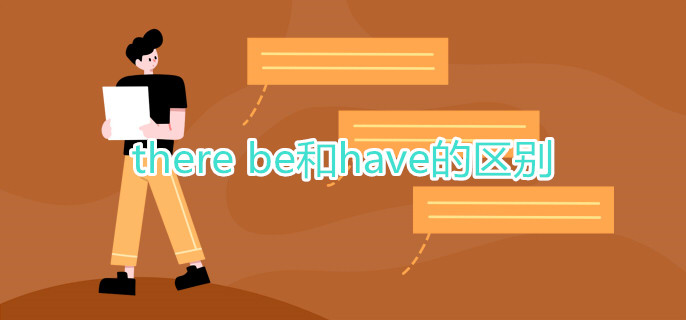-
-
there be和have的含义和用法不同,there be句型表达的是“在某个地方存在某人、某物等”,have/has则表示“某人拥有某物”。当主语为第三人称单数时,使用has;其他人称作主语,则使用have。在there be句型中,主语是单数,be动词用is;主语是复数,be动词用are。

there be和have的不同
所指关系不同
there be 指客观存在,表示“某处有某人/某物”;have指所属关系,表示“某人/某物有某物”。
eg: There are all kinds of books on my bookstore. 我的书柜上有各种各样的书。
I have all kinds of books. 我有各种各样的书。
句中位置不同
there be 通常放于句首,而have在句中。
eg: There is a post office near here.这附近有邮局。
The Green Street has two post offices. 格林大街上有两家邮局。
there be 句型为“There is/are+某物/某人+某地”;have句型为“某人/某物+have/has+某物”。用is/are或者have/has取决于句子的主语。
eg: There are two girls and a boy in the room. 房间里有两个女孩和一个男孩。
There is a boy and two girls in the room.房间里有一个男孩和两个女孩。
there be 连接两个主语时遵循“就近原则”。
Tom has a basketball.
汤姆有一个篮球。
疑问与否定句结构不同
there be的疑问句只需把be提前,“Be there…”,意为“有……吗?”否定句在be后加not,“There be not…”意为“没有……”;而have的要借助与助动词,主语为为第一人称,第二人称,第三人称复数,名词复数时为“do/don't”, 主语为第三人称单数或名词单数时为“does/doesn't”,疑问句结构为“Do/Does+主语+have+…”,否定结构为“主语+don't/doesn't+have+…”。
eg: Is there a hospital in your neighborhood?在你的街区里有医院吗?
Are there any students in the classroom?教室里有学生吗?